Himachal Pradesh High Court
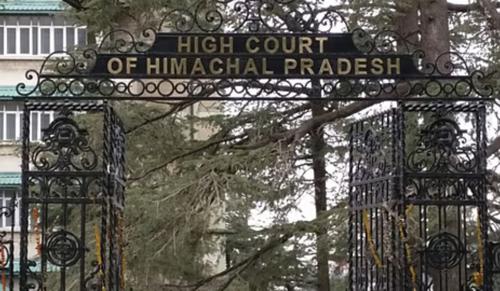
Executive Chairman Can Delegate Disciplinary Powers to DLSA: Himachal Pradesh High Court
The Himachal Pradesh High Court ruled that the Executive Chairman of the State Legal Services Authority (SLSA) is empowered to delegate disciplinary powers to the District Legal Services Authority (DLSA) under Section 9 of the Legal Services Authorities Act, 1987.
The Court observed that once such a delegation is made, disciplinary proceedings initiated by the DLSA’s Chairman are valid and legally sustainable.
The Court further held that the delegation of powers did not violate any statutory provision and that actions taken pursuant to the delegated authority could not be set aside merely on procedural grounds.
The disciplinary action was thus upheld as lawful.
[Om Prakash v Hon’ble High Court of H.P. & Ors.]
MamiraBookmark
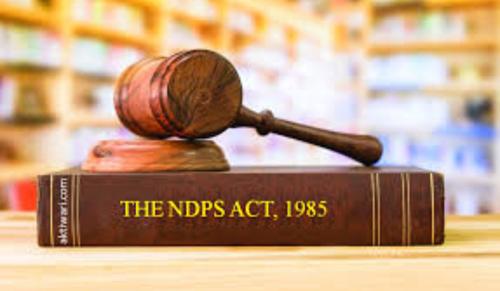
Intermediate Quantity Of Opium Poppy Not Covered By S.37 of NDPS Act: Himachal Pradesh High Court
The Himachal Pradesh High Court held that possession of 7.033 kg of poppy husk constitutes an intermediate quantity under the Narcotic Drugs and Psychotropic Substances Act, 1985, and therefore does not invoke the stringent conditions of Section 37.
The Court granting bail to the petitioner noted that the seized quantity fell between the notified thresholds, 1 kg for small and 50 kg for commercial quantity, under the Central Government’s 2001 notification.
The Bench found no evidence of prior criminal antecedents and observed that continued incarceration with habitual offenders would serve no legitimate purpose.
Accordingly, the Court directed his release on bail subject to appropriate conditions.
[Ugma Ram v State of Himachal Pradesh]
KhushaliBookmark
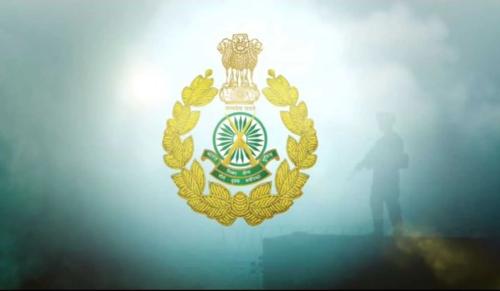
Himachal Pradesh High Court Calls Constable’s Illness-Related Dismissal “Harsh & Unjustified”
The Himachal Pradesh High Court held that the dismissal of an Indo-Tibetan Border Police constable for alleged desertion was unjustified and uncalled for.
The Court noted that the constable, with nearly two decades of impeccable service, had taken leave for medical reasons after an accident in 2005 and a subsequent tuberculosis diagnosis.
The leave, granted for 30 days, was not extended, leading to his wrongful declaration as a deserter and termination from service. The Court quashed the dismissal, emphasising the constable’s long-standing commitment and medical circumstances, and restored his service.
[Mahender Singh v Union of India & Ors.]
KhushaliBookmark

Himachal Pradesh High Court Denies Anticipatory Bail In SC/ST Act Case Driven By Caste Motive
The Himachal Pradesh High Court declined anticipatory bail to an accused charged under the Scheduled Castes and Scheduled Tribes (Prevention of Atrocities) Act, finding a prima facie case of caste-based offences.
The Court noted that the allegations, if proved, involved casteist abuse, intimidation, and discriminatory demands, including the offering of a sacrificial goat for purification of the complainant’s house.
The Court held that custodial interrogation was essential to ascertain the facts and ensure proper enforcement of the special legislation. The Court, observing the gravity and caste-motivated nature of the conduct, held that the pre-arrest bail plea was barred under Section 18 of the Act.
[Pushpa Devi v State of Himachal Pradesh]
YashashviBookmark
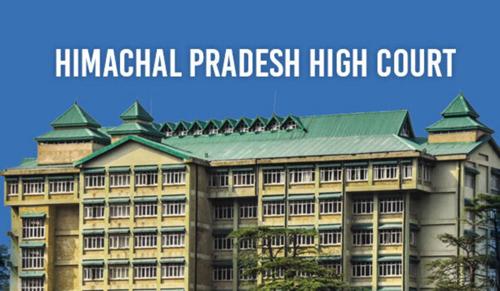
Election Petition Dismissed Over Missing Mandatory Affidavit: Himachal Pradesh High Court
The Himachal Pradesh High Court has held that an election petition alleging corrupt practices must be accompanied by an affidavit in Form 25, as required under Rule 94-A of the Conduct of Election Rules, 1961.
Justice Ajay Mohan Goel dismissed a petition filed by Congress leader Shri Ram Lal Thakur against BJP’s Shri Randhir Sharma, noting the absence of the mandatory affidavit and failure to disclose the source of allegations.
The petition had raised issues over vote counting, postal ballots, and corrupt practices, but the court ruled it non-maintainable due to procedural lapses.
MamiraBookmark

Himachal Pradesh High Court: Driver Identity Must Be Proven for Road Accident Conviction
The Himachal Pradesh High Court held that a conviction in a road accident case cannot stand unless the prosecution proves beyond a reasonable doubt that the accused was the driver.
Justice Rakesh Kainthla noted that both lower courts failed to establish the accused’s identity and the vehicle’s involvement.
The informant’s statement lacked the car’s registration number, and there were inconsistencies in the vehicle’s description. The injured witness admitted he heard the driver’s name from his sister, making it hearsay.
The investigating officer also gave no clear basis for identification. The Court ruled that the prosecution’s evidence was insufficient to sustain the conviction.
[Manoj Chauhan v State of Himachal and Ors.]
KavyanjaliBookmark

Himachal Pradesh High Court: Agreement to Sell Doesn’t End Landlord-Tenant Relationship
The Himachal Pradesh High Court held that a landlord-tenant relationship does not end merely because an agreement to sell includes an option to sell or lease the property.
Relying on Section 54 of the Transfer of Property Act, 1882, the Court observed that such an agreement does not itself create any interest in the property.
The ruling came in a rent petition where the landlord sought eviction for non-payment of rent. The tenant’s son argued that an agreement to sell had already been executed in his favour, but the Court rejected this contention.
[Prem Mohini Gupta v Sumitra (Deceased through LRs)]
KhushaliBookmark
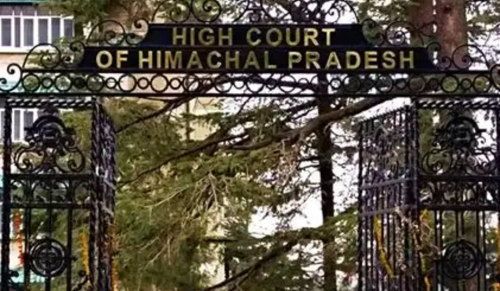
Postgraduate Diploma Not Equivalent to Degree for Promotion : Himachal Pradesh High Court
The Himachal Pradesh High Court held that a postgraduate diploma cannot be treated as equivalent to a postgraduate degree for promotions under the Himachal Pradesh Medical Education Service Rules, 1999.
The case involved a medical officer who sought to count teaching experience gained after obtaining a diploma towards eligibility for promotion.
The Bench noted that the essential qualification under the service rules is a postgraduate degree and clarified that the phrase “after doing post-graduation” refers only to the degree. Consequently, the Court rejected claims based on diploma-based service for promotion.
[Dr. Sunil Dutt v State of Himachal Pradesh & Ors.]
SoumyaBookmark

Govt Staff Can’t Be Fired Solely on Conviction without Independent Hearing : Himachal Pradesh High Court
The Himachal Pradesh High Court ruled that a government employee cannot be terminated automatically on the basis of a criminal conviction.
Quashing the dismissal of the Himachal Road Transport Corporation (HRTC) driver convicted under Sections 279 and 304A IPC, the Court held that the disciplinary authority must independently assess the nature of the offence, service record, and mitigating factors.
The Bench observed that termination without such application of mind violates due process, reaffirming that conviction alone is not enough to end service.
[Shiv Raj v Himachal Road Transport Corporation and Anr.]
SoumyaBookmark
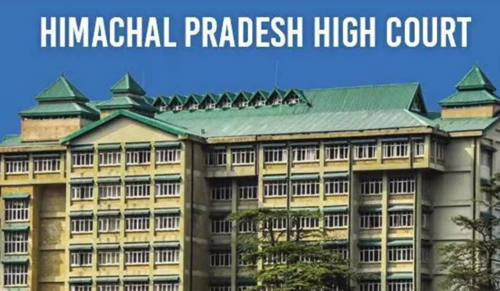
Himachal Pradesh High Court Upholds Valid Execution of Will, Dismisses Challenge
The Himachal Pradesh High Court has upheld the validity of a will, ruling that its execution was duly proven in accordance with the requirements of the Hindu Succession Act.
The court dismissed a challenge to the will, emphasising that the testimony of attesting witnesses satisfactorily established that the testator had signed the document in their presence.
The court reinforced that once due execution is proved, the burden shifts to those challenging the will to prove allegations of coercion, fraud, or undue influence.
The court found no such evidence, confirming the will's legitimacy and the distribution of property as per the testator's wishes.
[Vidya & Ors v Vinita & Ors.]
a month ago
YashashviBookmark

Shooting Another Person Believing Him To Be Wild Animal is Negligence, not Murder: Himachal Pradesh High Court
The Himachal Pradesh High Court has held that shooting a person under the impression that it is a wild animal amounts to death by negligence and not murder.
The Court was dealing with the bail application of a man who accidentally shot another man under the mistaken belief that he was hunting a bird in the forest.
The Court noted that the accused did not possess the required intention to commit an offence under section 103 of BNS but was only negligent in his actions, attracting liability under section 106 instead.
[Bhutto Ram v State of H.P.]
KhushaliBookmark

Himachal Pradesh High Court Acquits Accused, Holds Mere Recovery of Money Not Proof of Bribery
The Himachal Pradesh High Court has acquitted an accused in a bribery case, ruling that the mere recovery of tainted currency from a person is not conclusive proof of guilt.
The court noted that for a conviction, the prosecution must prove both demand and acceptance of a bribe as illegal gratification.
In this case, the prosecution's evidence failed to show that the accused demanded or received money, failing to create a reasonable doubt in the mind of the Court.
The court reinforces the legal principle that possession alone, without proof of demand, is inadequate for a conviction under the Prevention of Corruption Act.
[State of H.P. v Hari Saran]
a month ago
YashashviBookmark
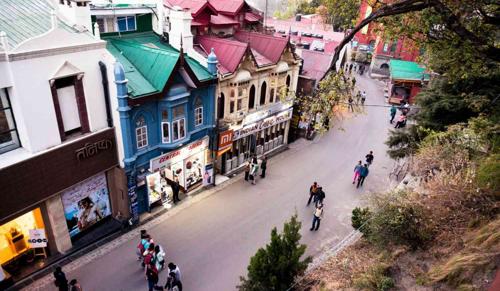
Himachal Pradesh High Court Pulls Up Authorities Over Traffic and Garbage Issues in Old Shimla
The Himachal Pradesh High Court has directed the Superintendent of Police (SSP), Shimla, and the Home Secretary to file a status report detailing all sealed roads meant for pedestrian use.
A bench of Chief Justice G.S. Sandhawalia and Justice Ranjan Sharma expressed concern that vehicles were blocking pedestrian pathways, leading to garbage piling up and unhygienic conditions.
The Court observed that Shimla is “losing its charm” and compared the situation to Mussoorie, where traffic is seen even on sealed roads, while also criticising the Municipal Corporation for failing to act.
The matter will be heard next on October 10, 2025.
[Sambhav Bhasin v State of H.P. & Ors.]
KhushaliBookmark

Himachal Pradesh High Court Declares Human Teeth are Not 'Deadly Weapon'
The Himachal Pradesh High Court has held that human teeth cannot be considered as 'deadly weapons' under the provision for voluntarily causing hurt using dangerous weapons (Section 324 IPC).
The Court was hearing a case where a woman and her child were attacked by a man inside their house in March, 2007.
While the Trial and Sessions Courts convicted the accused, the High Court noted that the subordinate Courts had erred in convicting the accused under Section 324 but upheld the conviction under other relevant provisions.
The Court also held that a house is the castle of a person and breaking into it, in the middle of the night, is a grave offence.
[Khelo Ram v State of H.P.]
KhushaliBookmark

Himachal Pradesh HC Upholds Acquittal in Rape Case, Cites Love Letters as Evidence of Consent
The Himachal Pradesh High Court upholds the acquittal of a man accused of rape, noting that love letters written by the complainant to the accused are clear reflections of her feelings.
The Division Bench observes that the letters indicate a consensual relationship between the two. It rules that the prosecution failed to establish charges of rape beyond a reasonable doubt.
Dismissing the appeal against acquittal, the court affirms the trial court’s findings and concludes that no interference is warranted.
[State of H.P. v/s Mam Raj]
SoumyaBookmark
